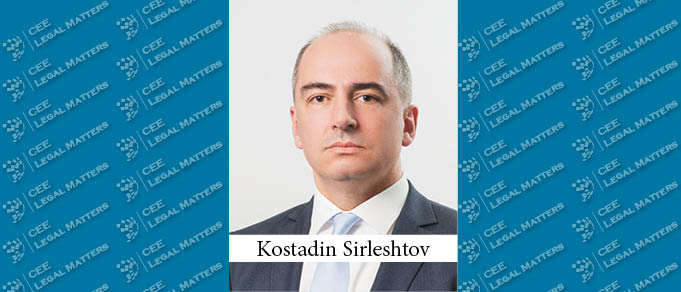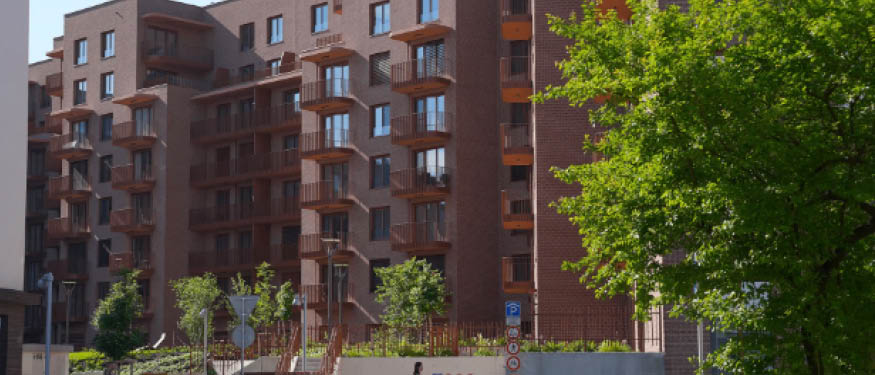The Energy & Climate Change practice of CMS has been booming in Bulgaria, according to Sofia Managing Partner and CEE Head of Energy & Climate Change Kostadin Sirleshtov, with work ranging from project, acquisitions, and financing mandates on renewables, to oil and gas, nuclear power, and a significant number of disputes.
CEELM: Please walk us through the mandates that have kept your practice busy of late.
Sirleshtov: Predominantly, we’ve been busy in the renewable energy sector, handling deals for the acquisition of PV and wind projects. Last year, we were part of the team that completed the acquisition of the largest PV project in Bulgaria – the 229-megawatt St. George facility – owned by Actis / Rezolv. We then acted for Actis / Rezolv on the licensing and financing side. We’ve also been facilitating acquisitions for CHINT Astronergy, a Chinese/Korean equipment producer that manufactures PV panels, transformers, and related equipment. They already had a 50-megawatt portfolio and, last year, they acquired an additional 200 megawatts, which are currently under development and set to start construction this year.
Another highlight was Aquila Capital’s purchase of three projects from the Greek developer METKA in Bulgaria – another substantial deal for the Bulgarian market. And we also assisted Vestas, the biggest wind turbine producer in the world, in acquiring two wind projects totaling 600 megawatts: a major player, and a significant acquisition. We also recently acted for Greenvolt in acquiring two projects exceeding 100 megawatts each and represented Bulgarian investors in their 100-megawatt Aratiden project.
Apart from renewables, we’ve also been active in oil and gas. We acted for upstream companies, assisting OMV in extending an exploration agreement in the Black Sea for two extra years and taking over operations of the Han Asparuh exploration block in the Black Sea (neighboring Neptune in Romania) from TotalEnergies.
We were also engaged on Units 7 and 8 of the Kozloduy NPP in Bulgaria on behalf of Hyundai (the Korean company acting as EPC constructor). Both new units will be AP1000 (Westinghouse) reactors, each capable of generating 1000 megawatts. Financing here is a significant challenge, due to the substantial deployment of capital in the early days and the uncertainty of return on investment, while the grid connection and electricity usability won’t be a problem, as the new units are replacing Units 1-4.
Finally, perhaps our most important win was in a dispute – ICSID announced the first victory against Bulgaria on behalf of a PV producer (on account of the country changing the regulation between 2012 and 2015, with some of the changes still ongoing). The amount awarded exceeds EUR 70 million. These disputes are not over, and the recent regulatory changes over the last year are just fuel for new disputes due to the unreasonable behavior of the Bulgarian Regulator against renewable energy investors with feed-in tariffs (which for PV were normally supposed to expire in 2032).
CEELM: And what are the main drivers for that pipeline of work?
Sirleshtov: The most significant driver is the EU's support for renewable energy. It’s now become the cheapest source of energy when you take everything into account. This solid economic incentive is what’s driving the investments forward. Additionally, the lack of upstream investment in oil and gas over the last decade has accelerated some of those exploration and drilling projects, with the price potentially increasing due to demand in the coming years. We predominantly speak of gas, which will be used to balance renewables. Gas-fired facilities will likely increase to provide balancing capacities.
Then there’s the interconnectivity that Bulgaria has with its neighbors, leading to foreign investors coming to build in Bulgaria with the hope of evacuating the produced electricity to foreign markets. Countries like Spain, Italy, and Germany have more regulatory stability. However, Bulgaria and Romania present new opportunities, perhaps with smaller acquisition costs. We don’t have major grid stability problems here, either. Some very mature markets don’t allow for the rate of return targets these investors aim for. The boom of renewables as such is also a driver for investment in grid facilities/balancing capacities like gas-fired stations and pumping hydro stations, with more to start in the future.
CEELM: What would you say is the outlook for the next 12 months?
Sirleshtov: We expect an even heavier workload in the coming year because we’re moving toward the final implementation stage for many PV projects. Our focus will likely shift towards wind project work, which typically has a longer investment cycle and is much more complex. These projects also tend to involve more foreign investors.
So, based on our strong project pipeline, we expect to stay busy. My understanding is that successful teams generate new work through their excellent reputation and service. The more clients we have, and the more effectively we serve them, the more work we can take on. We’ll be conducting promotions internally soon and potentially expanding the team by bringing in some bright new talent fresh out of law school and strategically headhunting brilliant associates already practicing in the market. Many clients are looking for good legal representation right now, but you need a strong team of lawyers to service them effectively.
















